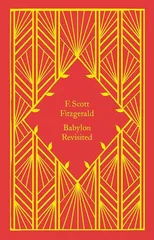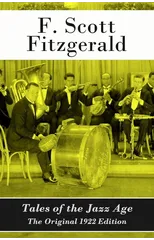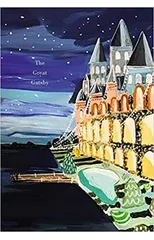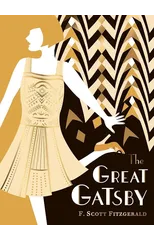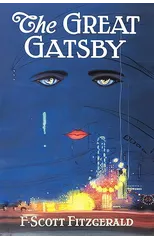""The Road to Wigan Pier"" by George Orwell is not your typical travelogue. Imagine a journey where the biggest sights are coal mines and the main attraction is the stark reality of working-class life in 1930s England. Orwell, who's more famous for giving us a dystopian future, now brings us a vivid portrayal of a dystopian present (or past, depending on when you're reading this!). Buckle up for a trip through the grim streets of northern England, where the food is bland, the coal dust is plentiful, and the only 'Instagrammable' moments involve poverty and social injustice. It's a unique expedition where Orwell's sharp wit and keen observations turn a grim topic into a compelling read. Forget luxury cruises and beach resorts; this is one 'road trip' that will change the way you see the world - no fancy luggage required!
F. Scott Fitzgerald
F. Scott Fitzgerald was an American novelist and short story writer known for his portrayal of the Jazz Age in American literature. His most notable works include "The Great Gatsby," "Tender is the Night," and "This Side of Paradise."
Fitzgerald's writing style is characterized by his use of lyrical prose and exploration of the themes of wealth, class, and the American Dream. He is considered one of the greatest American writers of the 20th century and his works continue to be studied and celebrated for their insight into the social and cultural dynamics of his time.
"The Great Gatsby" is Fitzgerald's most famous work and is widely regarded as a masterpiece of American literature. The novel explores the themes of love, wealth, and the pursuit of the American Dream, and has had a lasting impact on the literary genre of the novel. Fitzgerald's contributions to literature include his exploration of the complexities of human relationships and his keen observations of American society during the 1920s.

